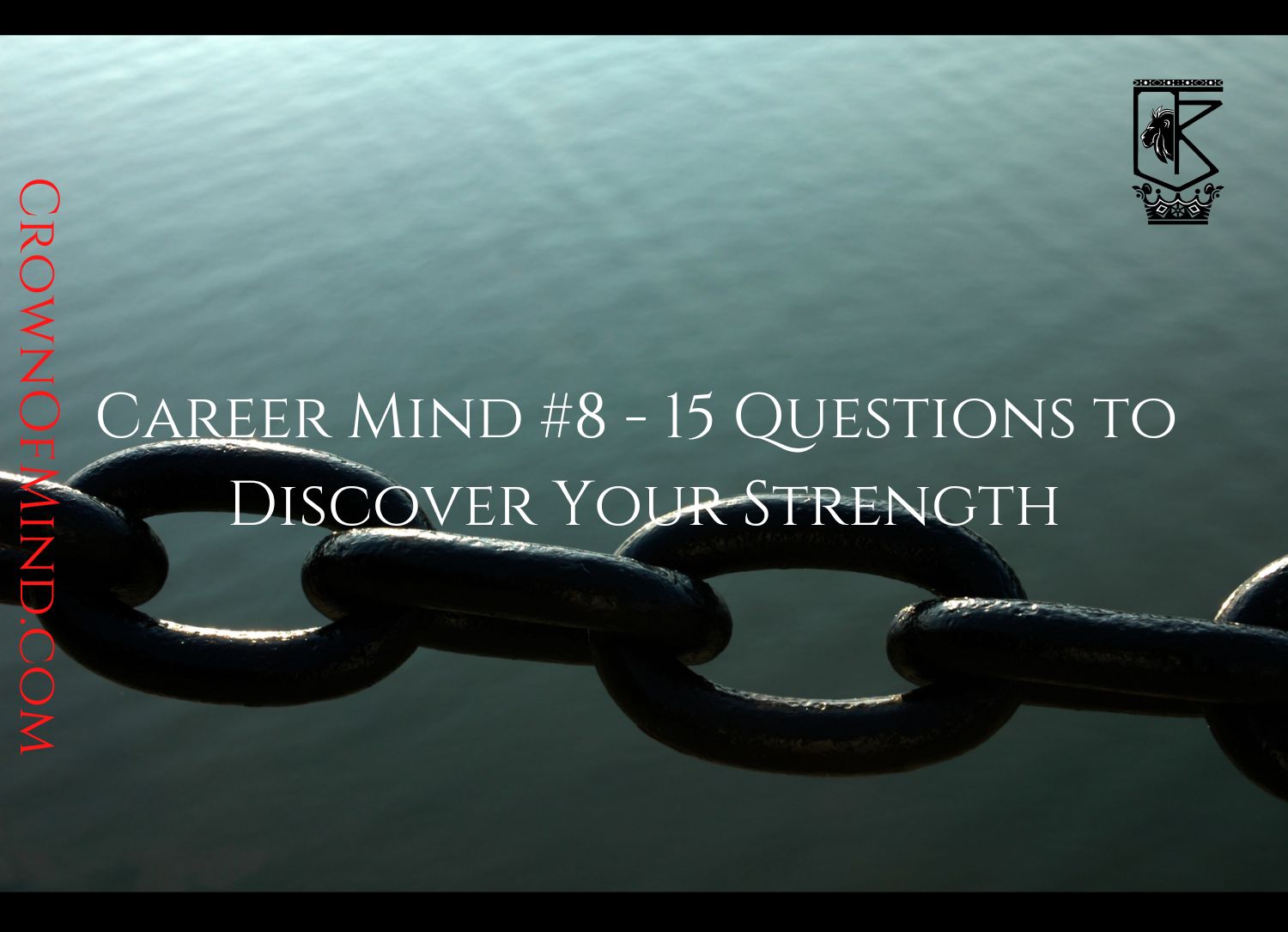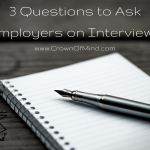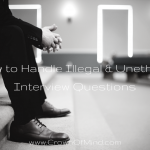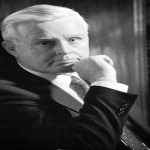Link to Original Post: https://www.linkedin.com/pulse/career-mind-8-15-questions-discover-your-strength-trent-rhodes
“Know Thyself.”– Kemetic Knowledge
“Know thy enemy and know yourself; in a hundred battles, you will never be defeated.” – Sun Tzu, Art of War
Second to “tell me about yourself,” the next most challenging question I observe for professionals is, “What’s your strength?”
The reasons for this are societal and many, too multi-faceted for a single article: an overt focus on external matters, treating self-knowledge as secondary if not last on the priority list, disinterest or unwillingness to invest the work towards self-knowledge, offloading self-knowledge to external entities, technological distractions consuming time away from self-reflection, fear of what self-knowledge may reveal.
The problems arising from this de-emphasis on self-knowledge are also many. From a career perspective it produces a pattern of diffused, wavering self-direction for professionals who have roles and those seeking them.
There will be many setting goals and resolutions at 2023’s start; doing this without understanding your strengths is like attempting to bake a cake without the baking tools. They’re foundational.
To have self-direction it’s assumed one knows what one wants. To know what one wants is to know one’s capabilities for actualizing that want. If one doesn’t know what one wants it’s likely because they don’t know what they’re good at.
Interviewers trying to ascertain your professional value will want to know what you can contribute to the existing team. Relates to your strength. Fumbling on this communicates you don’t know how you contribute value or lack attention to identifying it.
An antidote to this experience is to undergo some form of talent assessment. There are formal sources like the DISC or Myers-Briggs or VIA Character Strengths where you can receive essay-like descriptions on what your baseline abilities may be. They can be helpful for the language to describe strengths.
You also can reflect on your life experiences to extract key clues, hints and sources that may reveal strengths you’ve been using for years without realizing.
Below are questions that can aid in your journey. Properly formed, questions alone can provoke insight and inspiration. Used effectively, they can take you into imaginative spaces for self-exploration, enabling you to mine hidden gems that can serve professionally and personally.
1. What tasks have I done in past roles that I have been successful at?
This question prompts you to ponder on role patterns. If you had several jobs, there may be clues about the commonalities in your successful experiences.
By “success,” I mean the art-science of goal-attainment not the flashy nonsense often touted as such in media. The falsehood in fast-success schemes is you receive blueprints without developing the character necessary to work with them. You’re told if you follow this and this you’ll achieve it with ease. But that doesn’t prepare you for all of the daily, fundamental habits you need to work with the resources.
Consider when you set a goal and realized it, small or significant. What was it? What did you hope to achieve? What experiences did you aim to gain from working there? Consider the skills developed.
2. What have I enjoyed doing the most in my current role?
If you have a position now, give attention to what brings you joy about it. Understandably there may be aspects that are undesirable but if you do enjoy it, something about it offers benefit. This is the source of positive energy and motivation from doing things well, executing some skill or capability effectively.
3. What tasks do I seem to accomplish faster than others?
This is a signal for what could be one of your talents. If you perform the skill faster and more effectively, it means your body-mind is naturally oriented to do it. It also means you exert less energy compared to others; you’re primed or “born” to do that thing.
Some people have an adverse reaction to the idea of being “born” to do something because it appears like an unfair advantage, but it’s obvious some people scale high as gifted in certain domains. When a child is able to play a composition after engaging it for a short time or show advanced literacy or memory aptitude, we can say the child was “born” to play or memorize or write, meaning they were born with the high potential for skills related to those fields. If there’s another field that uses the talent, they’d perform just as well.
It’s my position that our society is on the downward spiral partly due to this ignoring and negation of early talent identification as an educational imperative. A kid who exhibits certain strengths ought to be nurtured, supported so they cultivate it to the highest degrees as it can uplift them and become a contribution to society.
Children who are mature enough may find or create environments that accomplish this but not all are so equipped with such initiative. These children risk becoming adults who will know the hottest influencers but don’t know themselves, strengths or how they could make their way in the world, living decades unable to articulate one power.
4. What strength have I been recognized for in previous positions?
This recognition could emerge from past performance reviews. If you never had a formal review, you could reflect on past comments, general feedback, compliments from work peers and the people you served.
In the service industries, your clients / customers are often sources of more positive feedback than supervisors or coworkers. To a customer who appreciates you and acts as a retained client of yours, they may be more inclined to explain why they value your service.
Think back to the comments you received. Do they hint at a strength?
5. What topics am I most passionate about?
Subjects you gravitate towards signal an attraction to a domain and by extension certain skills. “Passionate” here means energized.
What wakes you up? What do you find yourself thinking about, reading about, watching, talking about? With closer examination there may be a pattern that can lead you towards a constant. That constant can help you identify a strength.
If you don’t have a passion like this, that’s another journey to take. Passion is self-direction’s predecessor; without a vision or idea(s) that moves you to take action, you’ll be subject to someone else’s.
6. What activities do I excel in that come naturally to me?
Another signal to discover a talent. The goal here is to discover the activity and then assess what skills are involved in it.
If you happen to be a proficient runner, isolate the skills that make you skilled. Running is the obvious skill but you also have training, the discipline, the focus, ability to track performance, knowing how to deliberately practice, how to breathe, how to handle a setback, planning. You can apply the transferable skills to career domains.
7. What compliments do I receive from colleagues or customers?
If you received formal customer feedback or verbal appreciation, recollecting on the consistencies can help identify strengths. This feedback can also come from non-employed work colleagues.
8. What do I enjoy doing the most?
One way to think about this is what do you enjoy doing so much that you would do it for free. If you had access to all of the time and resources, what skills would you use unattached to a profit motive?
Children tend to be capable of having fun for the sake of, drawing for the sake of, playing for the sake of. Instead of harmonizing the two drives, the child grows and learns the ways of adult transactions and reframes life in terms of “I only do this to get that. If I don’t get that, I don’t do it.”
9. What do I find myself naturally gravitating towards?
Perhaps when younger you recognized you had a liking for a particular project or game or experience. This “gravitation” is an inclination. A clue to a domain internally speaking to you. You may dream about it. Arrives in your thoughts throughout the day.
Another signal is you have to exert more energy to step away from it. Nietzsche explained that talents are like vampires. They consume the “host” bearing them.
I’d add to that and say talents require expression and it takes greater energy to resist using them.
The brilliant mechanic would have a challenging time focusing away from mechanic-like experiences because they call upon him to express from the core of his being.
I ran an experiment in high school for a week, to not use any talents. It required more energy to withdraw them than to apply them. I also noticed a general de-energizing resulting from lack of expression. I learned in junior year that talents were enlivening capacities and had a spiritual component, showing us how we could apply ourselves to flourish in the world. They’re meant to be discovered and put to use. If suppressed or ignored they end up cannibalizing the person or discover malicious outlets. A mind is a terrible thing to waste, so are talents.
10. What kind of work do I seem to do best?
This question will help you identify where you excel in work. In a given role you may have several skills to execute with. You are drawn to some more than others. Of the several projects you may be working on, which of those use more of your aptitudes?
11. What activities do I find myself doing without thinking?
“Without thinking” here doesn’t mean absent-mindedness but being in-flow.
When you reach this “zone” you’re operating simultaneously on autopilot (subconscious takes over) and existing in the present moment. A combination of baekjul boolgool (indomitable spirit), zanshin (relaxed awareness), wu-wei (active non-action) and hypnosis.
Whatever puts you in this state is high signal for a strength, as it needs mental, physical and spiritual coordination.
12. What have I accomplished that I am most proud of?
Pride in an accomplishment typically houses the Hero’s Journey, brought to public discourse by Joseph Campbell: there was a goal, some challenge along the way, meeting allies, overcoming the challenge through the need to transform and realization of the goal where there’s a growth or maturity leap.
Commit time to examine why you valued an accomplishment and you may see how this process played out. The time where transformation was necessary (learning a new skill, gaining new knowledge, doing something different to change) is where you’d discover the strength.
13. What have I been complimented on by friends or family?
Generous relatives and friends may have shared why they value you. Reflect on the why behind their compliments to understand your strength.
14. What do I feel most confident about when I am at work?
Confidence is a high strength signal, general and situational confidence.
General confidence is tied to our degree of self-knowledge; the more you know yourself the more confident you will be no matter the experience. External forces don’t matter.
Situational confidence relates to how well you trust yourself to execute a skill based on competence. Generally this confidence connects to the tasks you’re more willing to take on. More situational confidence, the more likely you’ll welcome a project or task. On the contrary, the less confident the more likely you’ll try to dodge it.
15. What topics do I like to talk about the most?
What we tend to discuss is a reflection of the mind’s consistent ideas. Consider the subjects you enjoy conversing about, those that light you up. They can be indicators of where a strength may exist or potential for developing.










